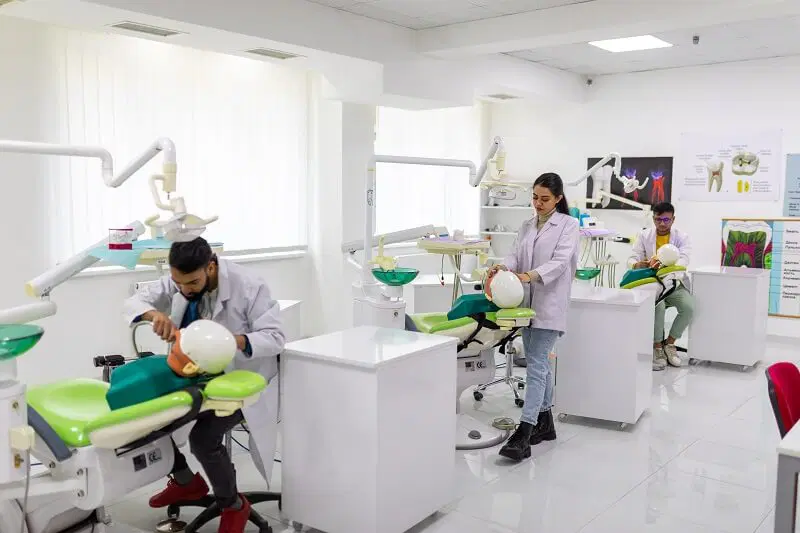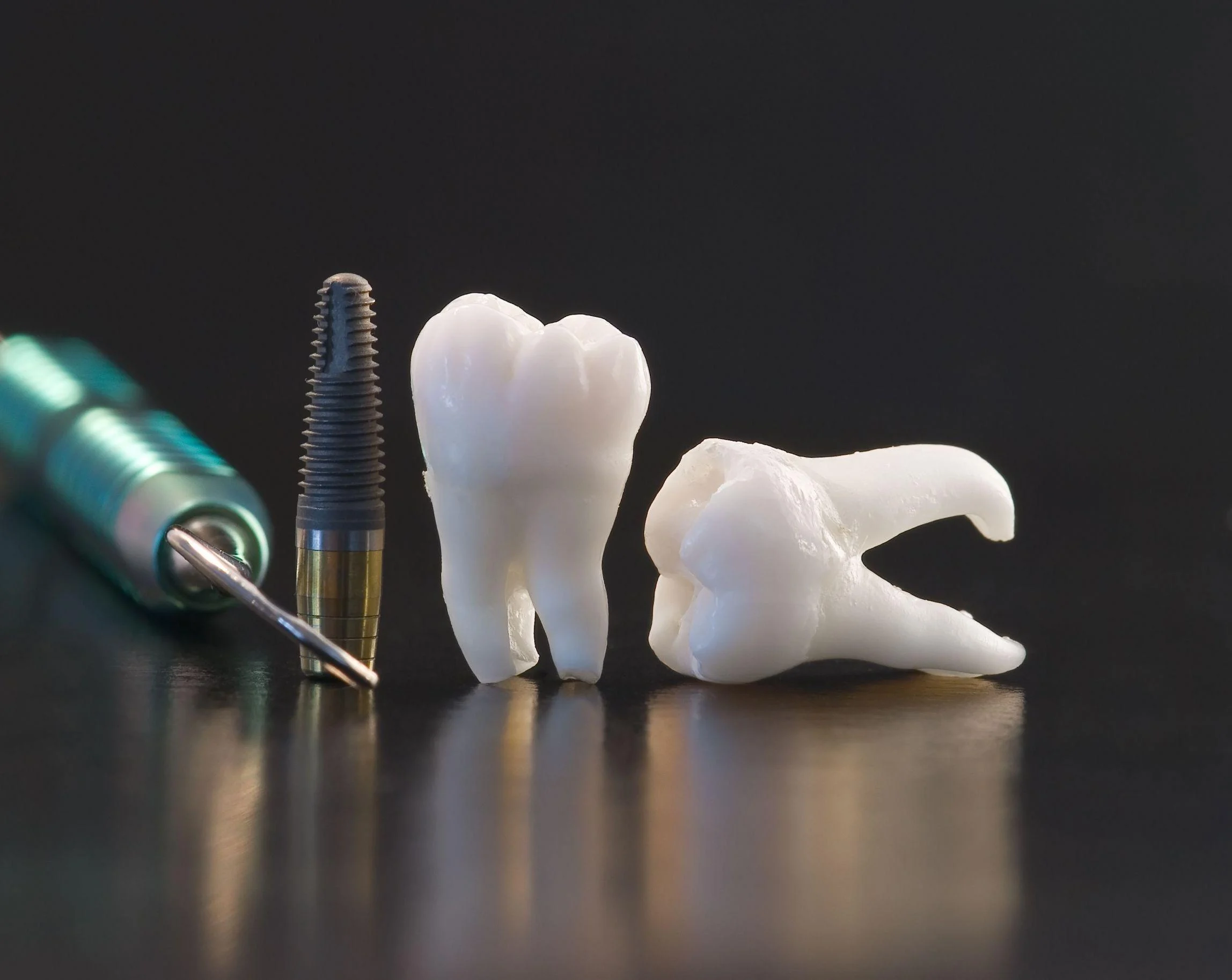Study Dentistry In Europe In English
-
Dentistry courses fully taught in English
-
Recognised by the WHO and listed in the World Directory of Medical Schools
-
DMD degree recognised by UK General Dental Council & Medical Councils worldwide
-
100% guaranteed acceptance into dental school
-
Affordable tuition fees & cost of living
-
Full ongoing support by doctors and students overseas


Why Pursue Your Medical Education

Globally
Recognised Courses

English
Taught Programs

Flexible
Admission Requirements

Affordable
Tuition Fees, Living Costs

Unlimited
University Applications

Less
Competition For Entry

Modern
Facilities & Technology

Work
Return Home, Start Practicing
Why Study Dentistry in Europe in English?
Applying for dentistry in your home country can be challenging. Education is expensive and admission requirements are very high. Even if you are eligible for entry into a dental course, there’s no guarantee that you’ll be accepted. Thousands of students apply for dentistry every year, and unfortunately not all get in.
This is why many students choose to study dentistry
Applying for a Doctor of Dental Medicine degree overseas is simple. Мany applicants prefer to study dentistry abroad in English rather than in the UK or their home countries. More often than not, it’s significantly more affordable as well. Not only that, but after 5 or 6 years of study, you gain your Master’s Degree in dentistry and can work anywhere in the world!
A dentistry degree in the EU or the European Economic Area will be recognised in the UK, the US, Canada, Australia, Ireland, and globally. The boundary for entry is significantly lower. Those who have unfortunately failed their exams or have received lower than expected grades due to some unforeseen circumstances can rest easy in knowing that there’s always a way to do the degree of their dreams.
Settling into the country of your choice and having a life abroad is an enlightening experience. You’ll gain a lot from meeting new people and sampling different cultures, as well as meeting like-minded students who will be more than happy to help out. You’ll end up paying less for rent and other necessities and living a more comfortable life without student debts.

Entry Requirements for Dentistry in Europe
European universities do not have a unified admission system. Many dental schools on the continent have devised their own entry requirements designed to target and attract the best possible applicants.
The two mandatory qualifications for all universities are secondary education and proficiency in English. Still, most schools offer a combination of the following entry requirements:
- Biology and Chemistry knowledge at the high school level
- High school diploma/GCSE/A-levels
- Multiple choice questions exam in Biology and Chemistry
- English language proficiency
- Online interview
- Personal statement
How Much Does It Cost to Study Dentistry in Europe?
Tuition fees on the continent range from €2,850 to over €30,000 per academic year. The difference in prices comes mainly from the economic state of the countries and the various fiscal rules they observe. Nonetheless, the cost of studying dentistry in Europe can be very advantageous for international students.
However, there are a few easy rules to illustrate the geographical distribution of prices. The further East you go, the lower the tuition fees get. Moreover, when you move to the North, prices get higher. Here is what these rules look like in numbers:
- The most affordable is Georgia, with tuition fees starting from €3520 per year
- Average prices are between €5,000 and €14,000 in Romania, Bulgaria, Hungary, Slovakia, and Poland
- The most expensive are countries in Western Europe such as Italy, Germany, and France with prices starting from €20,000
Where to Study Dentistry in English in Europe
The top 10 universities to study dentistry in Europe for international students are:
- European University Tbilisi in Georgia – €3520 per year
- Sofia Medical University in Bulgaria – €8000 per year
- Plovdiv Medical University in Bulgaria – €8000 per year
- The Medical University of Silesia in Poland – €12000 per year
- The Medical University of Warsaw in Poland – starting from €16000 per year
- Titu Maiorescu University in Romania – starting from €9000 per year
- The Semmelweis University of Medicine in Hungary – €16400 per year
- Riga Stradins University (RSU) in Latvia – €14000 per year
- Pavol Jozef Safarik University in Slovakia – €11000 per year
- Charles University in the Czech Republic – €12400 per year

Structure of Dentistry Courses In Europe
The courses are generally split into pre-clinical and clinical years. The first couple of years of study focuses more on fundamental knowledge such as Anatomy, Biochemistry, and Physiology. The clinical years are more practical-based. Here is where you’ll gain the experience and try out the technical knowledge you’ve learned throughout your time at the dentistry universities abroad. You will interact with patients and treat their dental problems on a daily basis.
After your studies, you can work anywhere in the world! This is a popular option for students who are looking to follow their dreams of studying dentistry but, due to unfortunate circumstances (or even a large volume of applicants for a small number of places), cannot do so. There’s always a way in the end! Sometimes you might end up in a better position than if you had just let that opportunity pass you by. There are hundreds if not thousands of students who make the jump and aim for their goals with relative ease. That could be you, after all.
Graduate Entry Dentistry In Europe
Many students have already studied Science-related degrees or Dental Therapy & Hygiene. Hence they have the pre-clinical knowledge needed to skip the pre-clinical years of a traditional full-time dentistry course. These students can study dentistry in 4 years in Europe, or sometimes even 3 years.
Most universities have dentistry programmes that are 5 or 6 years long. The graduate route into Dental Medicine is a fast-track accelerated dentistry programme allowing students to graduate sooner and become practising dentists quicker. Students who already attend a specific dental faculty and wish to change universities in Europe can do so via Entice Group.
Frequently Asked Questions
Depending on which European country you choose to study in, tuition fees can range anywhere between €3000 to €20000 per year. You can ask your advisor to list the best options according to your budget.
Absolutely, yes! There are more than 100 European universities that teach medicine in English. To learn more about them, check out the list that we created. It contains top medical schools in Europe that offer medicine, dentistry, pharmacy, and veterinary courses in English.
All European universities have high teaching standards. Georgia and Ukraine are the best if you are looking for a balance between education costs and quality of life. Bulgaria, Romania, and Poland are a bit more expensive in terms of tuition fees and living costs. It all comes down to personal preference.